European Day Of Languages – Best activities and resources for 2025

Celebrate linguistic diversity and promote language learning with these European Day of Languages ideas…

- by Teachwire
- Classroom expertise and free resources for teachers
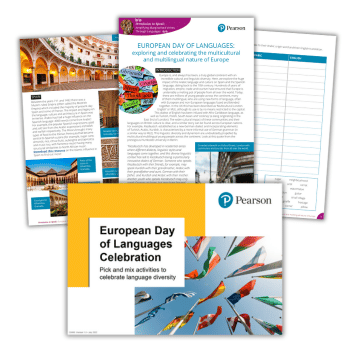
It’s more important than ever to use European Day of Languages to reinvigorate students’ attitudes to MFL and remind them exactly why learning another language is so amazing.
At the moment, only roughly half of Year 11 pupils learn a language for GCSE, according to the Language Trends England 2025 report from the British Council. Since 2024, students have studied reformed language GCSEs.
Table of contents
What is European Day of Languages?
European Day of Languages grew out of the success of The European Year of Languages in 2001. That event was jointly organised by the Council of Europe and the European Union. It involved millions of people across 45 participating countries.
It celebrated linguistic diversity in Europe and promoted language learning. Since then, European Day of Languages has been celebrated every year.
It aims to showcase the importance of language learning and diversify the range of languages learnt. This is in order to increase plurilingualism and intercultural understanding. It also aims to encourage lifelong language learning in and out of school. Here’s some ideas to get you started…
When is the European Day of Languages?
It takes place on 26th September each year. Why not kick things off with this fun multi-language version of the ever-popular Let It Go?
How to celebrate European Day of Languages
European Day of Languages classroom activities
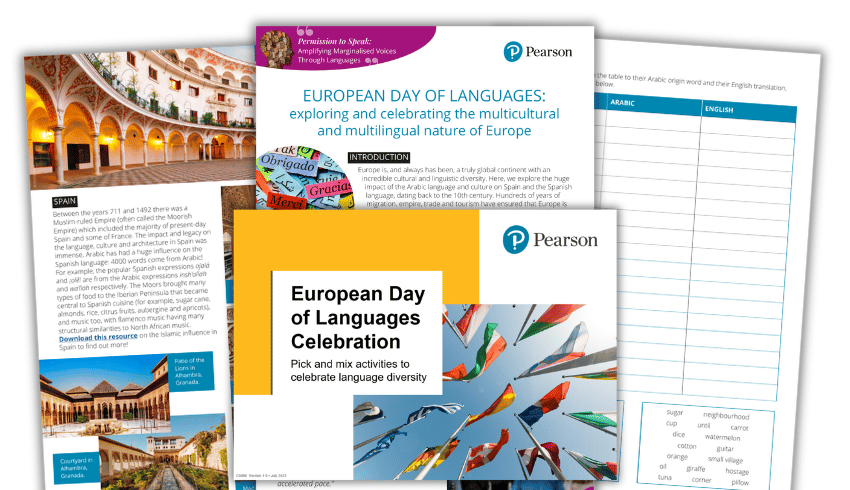
As part of its work to diversify the MFL curriculum, Pearson has partnered with leading language educators and leaders.
This free teaching resource explores and celebrates the multicultural and multilingual nature of Europe. There’s worksheets and a pick-and-mix activities PowerPoint.
Sports activities for KS3/4
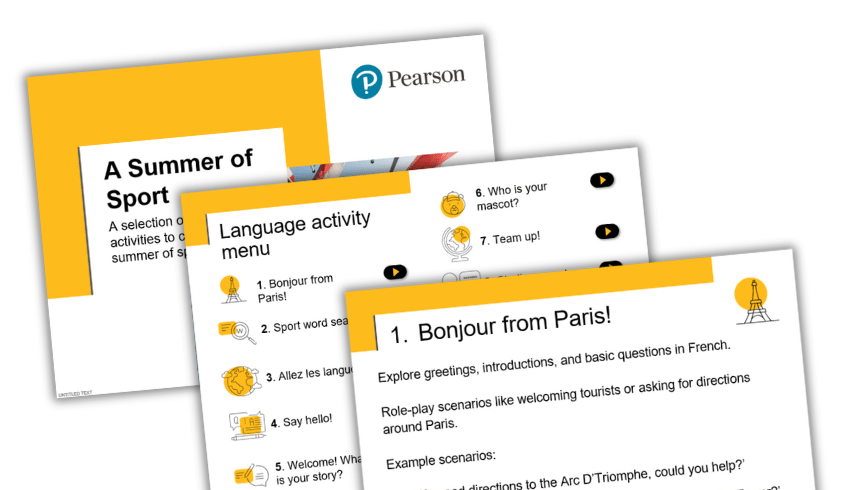
Dip into this selection of fun sports-themed MFL games and classroom activities for KS3 and KS4. You can use them as starters, stand-alone activities or for a whole lesson.
Activities include naming as many countries participating in this year’s Olympics, the name of the country in their own language and the language they speak, and researching popular stadium snacks from participating countries.
Why speaking other languages is beneficial
As part of its More than Words campaign, Pearson has interviewed a selection of different professionals within the football industry who highlight the countless benefits language learning has offered them in their careers. Videos include:
- Chelsea goalkeeper and England player, Hannah Hampton, sharing how her language skills help her on and off the pitch
- Chelsea head of staff and business operations, James Murray, talking about how learning Italian propelled his career
- West Ham head of player care, Stuart Brown, talking about how his language skills help him personally and professionally
- Sports journalist, broadcaster and events host, Reshmin Chowdhury, discussing her experience of language learning
Ideas for Early Years, Primary and Secondary
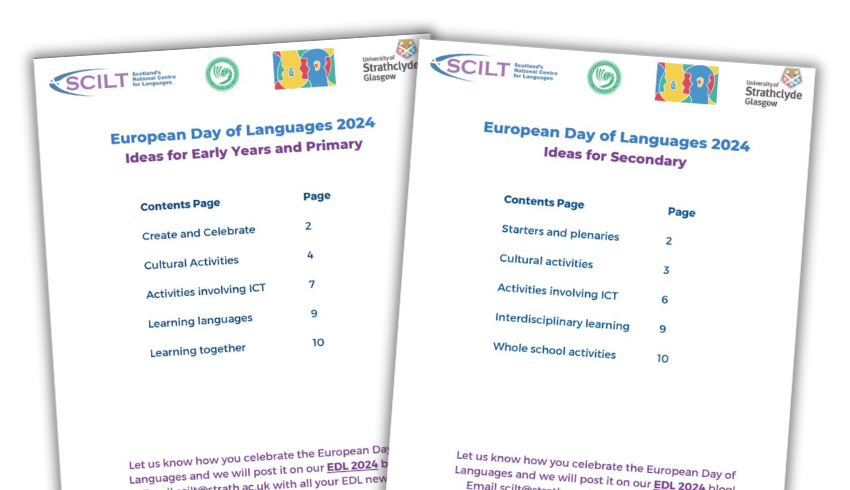
Created for 2024’s European Day of Languages, these free packs from SCILT feature lots of ideas to support you in celebrating the European Day of Languages in your school.
Let’s talk about languages
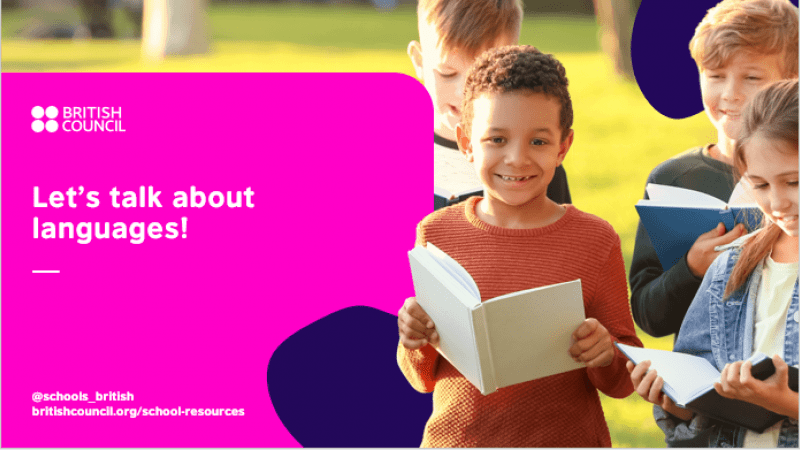
This Let’s talk about languages resource has been designed for primary students by the British Council as a fun way to introduce words in different languages. There’s activities to try and songs to practise.
The Great Languages Challenge
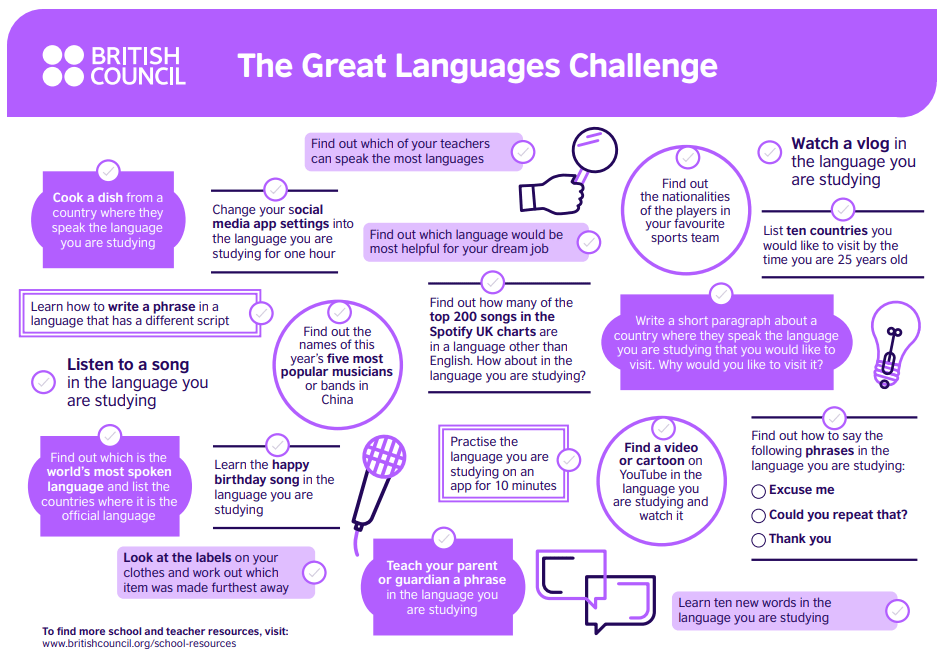
This free PDF from the British Council contains activities that you can do in the classroom or set as homwork activities.
Once you’ve completed two or more classroom-based activities you can apply for a Foundation Level International School Award.
Where will languages take me?
Inspire your secondary pupils to continue studying languages, or to choose languages as an option, with these eight short videos and accompanying pupil booklet from the British Council.
Each video features a person talking about their own language learning journey and where it took them.
Language detective
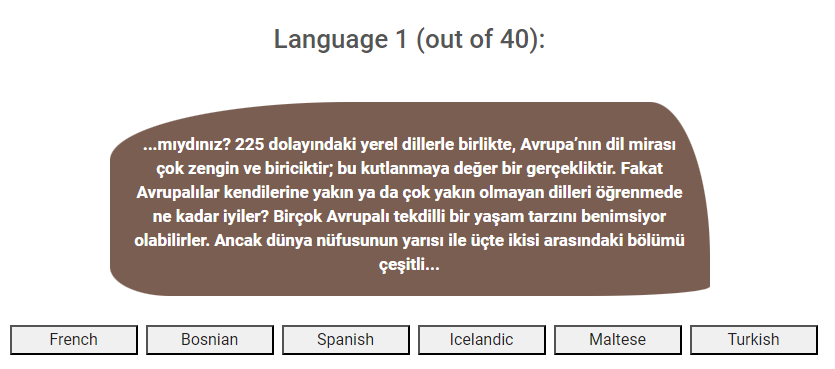
Can your students recognise all the languages being displayed in this game? There are 40 different snippets to identify…
Idioms of the world
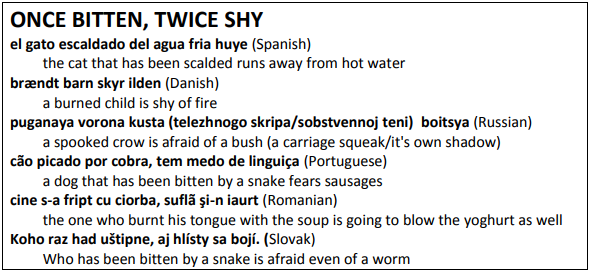
This is a fun little exercise to help pupils understand that languages are not simply a case of word-for-word translations. If you thought phrases like ‘don’t count your chickens before they’ve hatched’ were daft enough, try the Italian ‘non dire gatto se non ce l’hai nel sacco’ (‘Never say cat if you have not got it in your sack’). Check out the full list.










